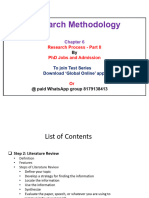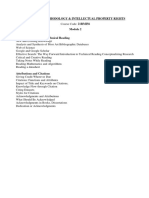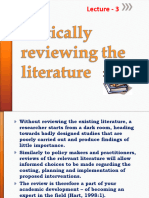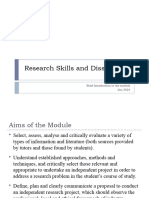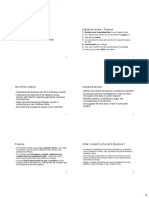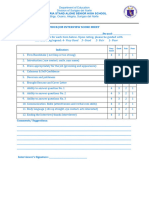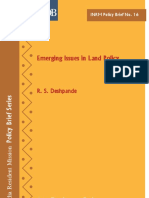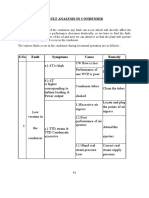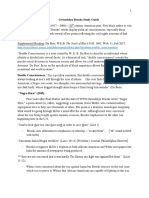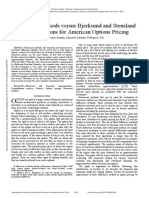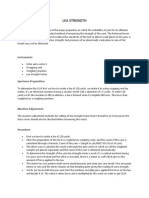0% found this document useful (0 votes)
35 views35 pagesWeek 3 Alternative Methods of Research Process
The document outlines the research methodology in IT for Semester II - 2024-25, focusing on alternative models of the research process and the importance of literature reviews. It emphasizes the stages of the research process, analogous to the software development life cycle, including conceptualization, operationalization, implementation, and testing. Additionally, it details the objectives and methods for conducting literature reviews, highlighting the significance of analyzing existing work to support new research claims.
Uploaded by
Gibril sonkoCopyright
© © All Rights Reserved
We take content rights seriously. If you suspect this is your content, claim it here.
Available Formats
Download as PDF, TXT or read online on Scribd
0% found this document useful (0 votes)
35 views35 pagesWeek 3 Alternative Methods of Research Process
The document outlines the research methodology in IT for Semester II - 2024-25, focusing on alternative models of the research process and the importance of literature reviews. It emphasizes the stages of the research process, analogous to the software development life cycle, including conceptualization, operationalization, implementation, and testing. Additionally, it details the objectives and methods for conducting literature reviews, highlighting the significance of analyzing existing work to support new research claims.
Uploaded by
Gibril sonkoCopyright
© © All Rights Reserved
We take content rights seriously. If you suspect this is your content, claim it here.
Available Formats
Download as PDF, TXT or read online on Scribd
/ 35




















